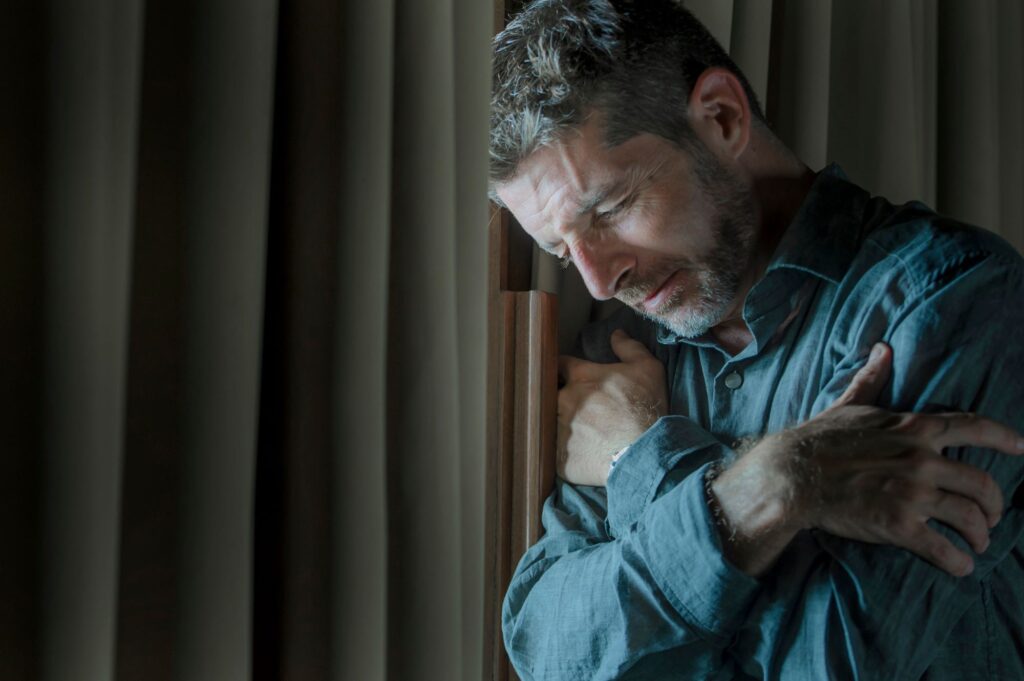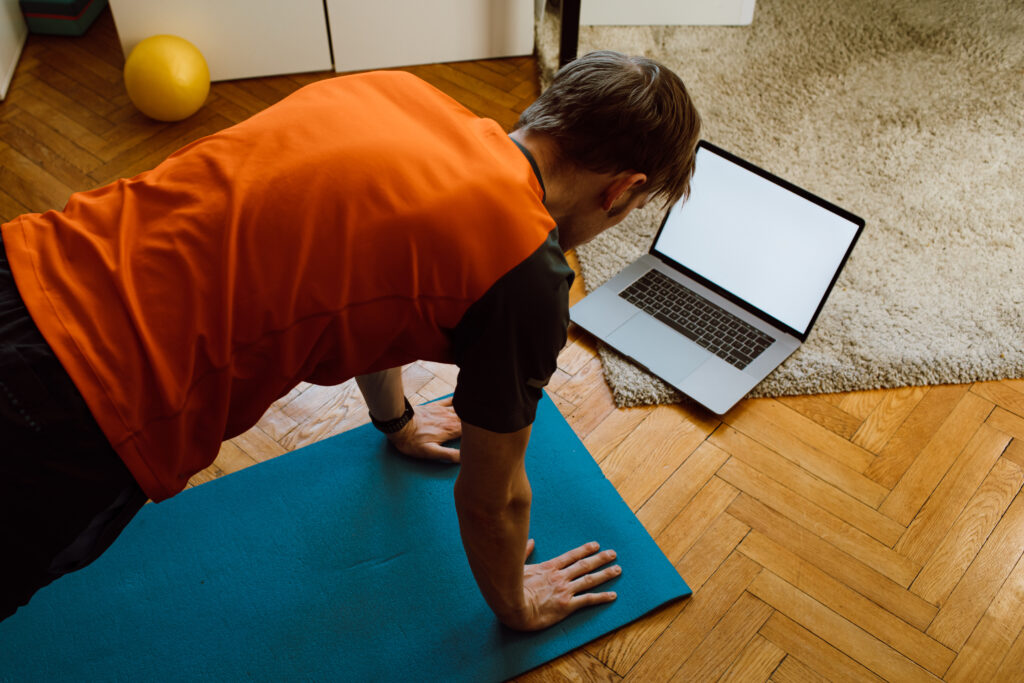Great strides have been made in recent years in the promotion and awareness of men’s physical health and wellbeing. Multiple forms of cancer and the likes of heart and lung disease amongst men have started to lose their taboo status. Consequently, the discussion of such topics is more commonplace. Work is still to be done in terms of these life-threatening physical issues but by comparison to men’s mental health, they are well ahead.

Don’t mention men’s mental health
The discussion of men’s mental health remains a taboo subject. In post-modern society, traditional gender stereotypes clash with new concepts of shared roles for men and women. Males can often feel bewildered and confused about what it means to be a man in modern society.
They can be torn between: macho man who never talks about his feelings and emotionally sensitive husband/partner. Feeling pressure to be the main bread winner and spend time with their partner/kids. To be at the gym for 6-pack abs but home in time for bath and bed time. Worse still, old gender stereotypes still rule in terms of how men are ‘taught’ to handle the pressures of modern living: shut up, get on with it and definitely don’t talk about it.
A silent epidemic
Men are struggling with their mental health. Data from the Mental Health Foundation and Office for National Statistics indicate that only 38% of NHS referrals to talking therapies like counselling are for men. Despite this, 78% of deaths by suicide in the UK are by men. At The Spark Counselling we see similar data to support this growing problem with well over half of all visits to our website made by men. Furthermore 40% of callers to our Helpline are male. Clearly men’s mental health is a big issue in Western society today.
Tackling men’s mental health is a complex issue but we have pulled together some tips and advice for men on how to tackle mental health issues:
Talk to someone (or better still, talk to a counsellor)

Bottling up your emotions, disappointments and hurts will increase the likelihood that they will explode all at once. Talking to someone about how you are feeling and what is challenging you is an important release valve for the pressure you are experiencing.
Better still, speaking to a trained counsellor creates an environment where you can safely and confidentially explore what is behind issues like stress, anxiety and depression. Counsellors can facilitate the process of finding ways to deal with and overcome those issues, and provide an objective and neutral perspective that can be lacking when speaking to loved ones, friends or family.
Find out more about counselling with The Spark.
Connect with people
You are programmed to be sociable (even though it may not seem like that some of the time) and your mental health is connected with how you do/do not interact with other people. When life becomes overrun with work and your closest relationships are with your laptop, your printer and your boss, you lose out. Work at making opportunities to share, learn and simply enjoy the company of others. You can be supported through stressful times (and support others) if you maintain your connections with friends, family, neighbours and colleagues. So spend time developing the relationships that count – for the good times and the more difficult times.
Get or continue to be active

Physical activity releases endorphins – the body’s natural mood enhancer – and provides opportunities to connect with existing or new friends. It is not about becoming a triathlete or winning your local 5-a-side league. It is about finding an activity that you enjoy like swimming, tennis or a walk with a friend – and being active. Focusing on a particular physical activity also helps with the concept of being ‘mindful’, another way to support mental health in men.
Be mindful
Mindfulness at its simplest level is about being more aware of the present. It is taking time to consider your thoughts, your feelings, your body and the world around you, instead of getting caught up in the mental chatter of modern life. It is easy to get caught up in the rush of life – e-mails, work, appointments, social media, picking up the kids, meetings, more e-mails – and that can be reflected in your mind which may often seem unable to ‘switch off’. Mindfulness can encourage you to stop and step back from this constant stream to observe the thoughts that often carry you away and the physical feelings (like the simple act of breathing in and out) you take for granted.
Pick up a new skill

Nothing quite matches the satisfaction that comes with learning a new skill or mastering a hobby. Once you decide you have ‘grown up’ further learning can seem relevant only to employment – finding a job, keeping a job or scoring that promotion. Great satisfaction can often be found in taking up something you are interested in and learning a bit more about. It is not a question of scale or complexity (though don’t let us stop you if you want to learn how to play Beethoven’s Piano concerto number 5 or score a free kick like Ronaldo) it is about what interests you.
If you enjoy drawing, sign up for a beginners art class; if you always loved building Airfix model aeroplanes as a kid, buy yourself a few and get building. If you loved playing rugby but hung up your boots because you thought you were ‘too old’, take a coaching course and teach the next generation. Such activities provide a sense of purpose and pride in yourself that is yours and yours alone.
Men’s mental health: we are here to help
Men’s mental health is an ongoing challenge for individuals and society. Statistics indicate most men will have to deal with mental health issues at some stage in their lives. But the statistics also prove they are not alone and organisations like The Spark Counselling are available to support you at every step, from prevention to recovery.
Counselling and support
The Spark offers face-to-face and online counselling appointments. If mental health problems or concerns about mental health are impacting on you or your relationships you can read more about The Spark’s counselling services or complete an enquiry form.

